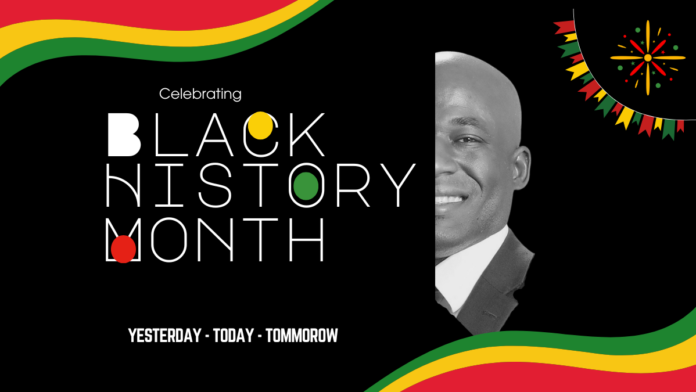As we gather to celebrate Black History Month, we honor the rich tapestry of African American heritage that has indelibly shaped the United States. This month is a dedicated time to reflect upon and celebrate the myriad contributions of Black Americans to our nation’s history, culture, and economy. Their resilience, innovation, and unwavering spirit have been instrumental in forging the path toward a more inclusive and prosperous society.
The journey of Black Americans is one of profound transformation—from the harrowing era of slavery to the relentless pursuit of equality and economic empowerment. Despite facing systemic oppression, African Americans have continually demonstrated an unyielding commitment to progress and excellence.
In the early 20th century, Black entrepreneurs established thriving communities such as the Greenwood District in Tulsa, Oklahoma—affectionately known as “Black Wall Street.” This district was a testament to Black economic prowess, housing hundreds of businesses, including banks, theaters, and restaurants. The tragic destruction of this community in 1921 serves as a poignant reminder of the challenges faced, yet it also underscores the resilience and determination inherent within the Black community.
The Civil Rights Movement of the 1950s and 1960s marked a pivotal era in American history. Leaders like Dr. Martin Luther King Jr., Rosa Parks, and Malcolm X galvanized the nation, challenging the status quo and advocating for justice and equality. Their efforts culminated in landmark legislation, such as the Civil Rights Act of 1964 and the Voting Rights Act of 1965, dismantling legal segregation and paving the way for greater economic and social opportunities for African Americans.
In the realm of business and entrepreneurship, Black Americans have made significant strides. Pioneers like Madam C.J. Walker, recognized as one of the first female self-made millionaires in America, built a beauty empire that not only provided products tailored to Black women but also created employment opportunities within the community. Today, we see a continuation of this legacy with influential figures such as Robert F. Smith, a financier and philanthropist, and Oprah Winfrey, whose media conglomerate has had a profound cultural and economic impact.
The contributions of Black Americans extend beyond economics into the very soul of American culture. The Harlem Renaissance of the 1920s and 1930s was a cultural explosion that introduced the world to the artistic and intellectual achievements of Black artists, writers, and musicians. Figures like Langston Hughes, Zora Neale Hurston, and Duke Ellington showcased the depth and diversity of Black creativity, enriching American arts and letters.
In the sciences, individuals such as Dr. Charles Drew revolutionized medicine with his research in blood plasma preservation, leading to the development of blood banks—a critical advancement that has saved countless lives. More recently, Dr. Kizzmekia Corbett played a pivotal role in the development of the Moderna COVID-19 vaccine, exemplifying the ongoing contributions of Black scientists to global health and innovation.
Despite these remarkable achievements, disparities persist. Black Americans continue to face challenges in wealth accumulation, access to capital, and representation in certain industries. According to a report by the Joint Economic Committee, Black workers and families lag behind other racial and ethnic groups in wealth, face ongoing disparities in income across levels of educational attainment, and struggle to save for retirement and child care. These disparities underscore the need for continued efforts toward economic equity and inclusion.
Education has always been a cornerstone of Black advancement. Historically Black Colleges and Universities (HBCUs) have played a crucial role in providing quality education and fostering leadership within the Black community. Institutions like Howard University, Spelman College, and Morehouse College have produced distinguished alumni who have made significant contributions across various sectors, including politics, science, and the arts.
In the political arena, the election of President Barack Obama in 2008 marked a historic milestone, symbolizing the progress made and the potential for a more inclusive future. His presidency inspired a new generation of leaders and underscored the importance of representation at the highest levels of government.
As we reflect on these milestones, it is imperative to recognize that the journey toward equality and inclusion is ongoing. The recent resurgence of social justice movements highlights the enduring challenges faced by Black Americans and the collective responsibility to address systemic inequities.
In celebrating Black History Month, we not only honor the past but also commit to fostering a future where diversity, equity, and inclusion are not just ideals but lived realities. This commitment requires intentional actions—supporting Black-owned businesses, advocating for policies that promote economic equity, and creating spaces where diverse voices are heard and valued.
The economic impact of embracing diversity is profound. A study by McKinsey & Company found that companies with greater ethnic and racial diversity are 35% more likely to have financial returns above their respective national industry medians. This statistic underscores that diversity is not just a moral imperative but also an economic one.
In the spirit of unity and progress, let us celebrate the achievements of Black Americans not only during this month but throughout the year. Let us educate ourselves and others about the rich history and contributions of African Americans. Let us challenge biases and work collectively toward a society where everyone has the opportunity to thrive.
In closing, Black History Month is a celebration of resilience, innovation, and the enduring spirit of a people who have contributed immeasurably to the fabric of our nation. As we honor their legacy, let us be inspired to build a future rooted in diversity, inclusion, and love—a future where the contributions of all are recognized, and the potential of every individual is realized.
Thank you.





